Does this sound familiar to you? You’d like to jump into the world of investing, but the barrier to entry looks high. All of the financial news pundits look like a bunch of intimidating, pompous, screaming lunatics dishing out doomsday forecasts that leave you feeling nauseated.
You know you should invest, but you’re not even sure where to begin. Robo-advisors? Investment accounts? Can it all be done on your smartphone?
You’re not looking to become the next Warren Buffett – you want to set it and forget it.
You’re looking for an easy way to set up an account, automate it, and never have to think about it again, leaving you with more time to sip on your robust, golden, bourbon barrel-aged Allagash Curieux ale. God damn, that tastes fanfuckingtastic.
We’re going to take a look under the hood of the micro-investing app, Acorns. And who knows? Maybe it’s the perfect place to start squirreling away your spare change and start investing.
Minimum Investment:
$0
Management Fees:
$1, $2 or $3 a month.
Promotion:
Signup and get $5
Tax Loss Harvesting:
No
Portfolio Rebalancing:
Yes
Assets Under Management:
$1 billion
Minimum Investment:
$0
Management Fees:
0.25%
Promotion:
Invest free for up to 1 year
Tax Loss Harvesting:
Yes
Portfolio Rebalancing:
Yes
Assets Under Management:
$21 billion
Minimum Investment:
$0
Management Fees:
0.5%
Promotion:
Get your first $10,000 managed free
Tax Loss Harvesting:
Yes
Portfolio Rebalancing:
Yes
Assets Under Management:
$13B
Check out our full comparison of Acorns vs Betterment vs Wealthfront.
Acorns App: What’s Micro-Investing?
In a nutshell…
It’s investing your spare change into a:
- Bank account like a savings account or checking account (technically not ‘investing’ since it’s going into a savings or checking account – not a portfolio – but I include it here).
- Taxable account like an investment portfolio held by a broker.
- Retirement account like a traditional IRA.
Micro-investing in practice.
Let’s say you spend $13.75 at Starbucks. When using a micro-investing app, that extra $0.25 gets rounded-up and deposited into a savings account or investment account.
Micro-investing rounds-up to the nearest dollar, depositing your spare change. When done frequently, those small deposits add up over time.
Acorns: The Gateway Drug of the Investing World
You know how people say that marijuana is a gateway drug? That smoking pot leads to experimenting with more potent and illicit substances that will ultimately turn you into an addict immersed in a life of crime?
That’s how I view Acorns – minus the heavy drug use and criminal life.
It’s the gateway drug of the investment world. Why?
That’s because it:
- Has a low barrier to entry
- Is great for the beginning investor to “just get started”
- Automatically invests your spare change
- Is all done from your smartphone.
The easier it is to start something, the easier it will be to build momentum from it.
Tweet ThisStarting small with something like micro-investing coupled with bite-sized financial nuggets of wisdom could lead to you becoming a money-savvy fiend down the road.
Before you know it, friends and family are turning to you for financial advice. Imagine that!
What Is Acorns?
Acorns is a micro-investing app you download to your smartphone that lets you invest your spare change.
Your spare change is then funneled into a diversified portfolio of exchange-traded funds (ETFs).
Acorns was founded by father and son team Walter and Jeff Cruttenden in 2014. Since then, Acorns has grown to manage over $1 billion in assets and has more than four million users.
They’ve also earned some reputable street cred:
- Fast Company named Acorns one of the 50 Most Innovative Companies of 2019
- Featured by Apple as their “App of the Day,” 2019
- CNBC said this about Acorns, “Investing is one of the most effective ways to build wealth, and you don’t need a lot of money to get started thanks to Acorns.”
They also have two Nobel Prize-winning economists on their advising board:
- Harry Markowitz, recipient of the Nobel Prize in Economic Sciences and founder of Modern Portfolio Theory.
- Richard H. Thaler, Nobel Memorial Prize recipient in Economic Sciences for his contributions to behavioral economics.
Investing apps like Acorns are breaking down the confusing, intimidating world of Wall Street. They’re making it more accessible for the ‘everyday’ investor much like Jack Bogle did back in the ‘70s with his creation of the first index fund.
The difference is Acorns is guided by technology using a
If you want to learn more about the company we did an interview with there founders here.
A Look Under the Hood
When visiting their site, Acorns breaks its services down into four categories:
- Invest
- Spend
- Earn
- Grow
Let’s get into the hairy weeds.

Acorns Invest
This is where first-time users start – Acorns Core.
Creating an account with Acorns is simple and can be done in less than five minutes. You’ll provide your email address and create your password. They’ll ask you a few questions about savings goals and risk tolerance.
You will need to provide your Social Security number and date of birth (standard when creating an account with a financial institution).
Let’s say you create an account with a moderate risk-level after completing their questionnaire about your investing goals and risk tolerance. Your portfolio will look something like this:
Acorns then presents you with a portfolio spread across seven asset classes:
- Government Bonds (iShares 1-3 Year Treasury Bond ETF)
- Corporate Bonds (iShares iBoxx Investment Grade Corporate Bond ETF)
- Large Company Stocks (Vanguard 500 ETF)
- Small Company Stocks (Vanguard Small-Cap ETF)
- Emerging Market Stocks (Vanguard Emerging Markets Stock ETF)
- Real Estate Stocks (Vanguard REIT ETF)
- International Large Company Stocks (Vanguard FTSE Developed Markets ETF)
***CON*** These are the only seven funds Acorns gives you. If you’re a beginning investor, this may not matter. Although Vanguard and Blackrock (parent company of iShares) are industry leaders, if you’re seeking a broader diversification or specific funds not on this list, you may want to look elsewhere.
Here’s how Acorns breaks down your exact percentages of each asset class.
You can click on any fund in your portfolio and Acorns gives you more details about it. In this example, I clicked on the Vanguard S&P 500 ETF and was prompted to this screen.
Your portfolio is created instantly removing any guesswork on your part and entrusts it to the capable hands of a
ETFs are traded more frequently throughout the day like stocks versus an index mutual fund. Acorns doesn’t attempt to beat or time the market.
***PRO*** for the passive investor.
Every dollar is invested with its use of fractional shares. Fractional shares allow you to buy only a fraction of a company – a handy feature for investors on a lean budget.
***PRO*** for the lower-net-worth investors
Round-Ups
When you create your Acorns account, you can link as many credit cards or debit cards as you like.
Creating an account is free. However, Acorns doesn’t begin investing for you until your account hits $5 worth of round-ups. Round-ups are the spare change amounts that get rounded-up to the nearest dollar.
You can set your round-ups to automatic or customize them. When set to automatic, Acorns will round-up every purchase. When you customize, Acorns will only round-up select retailers and purchases.
Their Potential Tool shows you the differences between the dollar amounts you invest and shows how those different dollar amounts accumulate over time.
You can also choose to round-up 2, 3, or 10 times the amount with their multiplier tool. For example, you spend $10.50. Instead of rounding up to $11 you can 10x your round-up, making it a $5 investment as opposed to $0.50.
Acorns Later: The IRA Add-On
On top of their investing platform Core, Acorns Later offers three different IRAs for you to choose from. This is your retirement savings or, the money you’ll need later. The IRAs offered:
- SEP IRA
- Traditional IRA
- Roth IRA
Acorns asks a few questions then makes their suggestions based off of your responses. They even provide quick tutorial videos that break down exactly what the different IRA accounts are and which one makes the most sense for you.
Upon answering their questions, Acorns creates your IRA automatically based on your lifestyle and goals. They also factor in your age and the time until you hit retirement. Acorns automatically will rebalance your portfolio the closer you get. The closer your date approaches, the more conservative your portfolio becomes.
Acorns does recognize external accounts like a 401(k) or existing IRA and allow you to roll those over.
Acorns Spend: Digital Checking
Acorns Spend, their all-digital checking account with retirement and investment accounts built-in, even comes equipped with a debit card. This ain’t your grandpa’s debit card either.
They sold out of their first 100,000 cards. I had no idea colored PVC cores with tungsten inlays were so popular.
This debit card comes with all the bells and whistles:
- No overdraft fees
- No minimum balance fees
- Unlimited free or fee-reimbursed ATMs nationwide. If you do get smacked with a fee, Acorns has your back.
Acorns Spend is FDIC insured up to $250,000 and includes fraud protection and digital card lock.
Spend includes Acorns Core and Acorns Later. When you sign up for their all-digital checking, Acorns Spend, Later and Core come along for the ride.
***PRO*** Opening a Spend account means all of your financials are housed in one place. This speeds up transactions. Having an external funding source from another bank could delay receiving your money when withdrawing or transferring by five days.
Acorns Found Money
Found Money is the equivalent of an employer-match 401(k) plan. For every purchase you make with one of Acorn’s 200+ partners, they’ll contribute a dollar amount or a percentage of your purchase into your investment account. That’s free money.
Used on top of a rewards credit card can double or triple your earning power.
A complete break down of their partners can be found on their site. The above image is just a bite-sized portion.
Clicking on a specific partner reveals the terms of each partner, so you know exactly what you’re getting when you shop at each retailer.
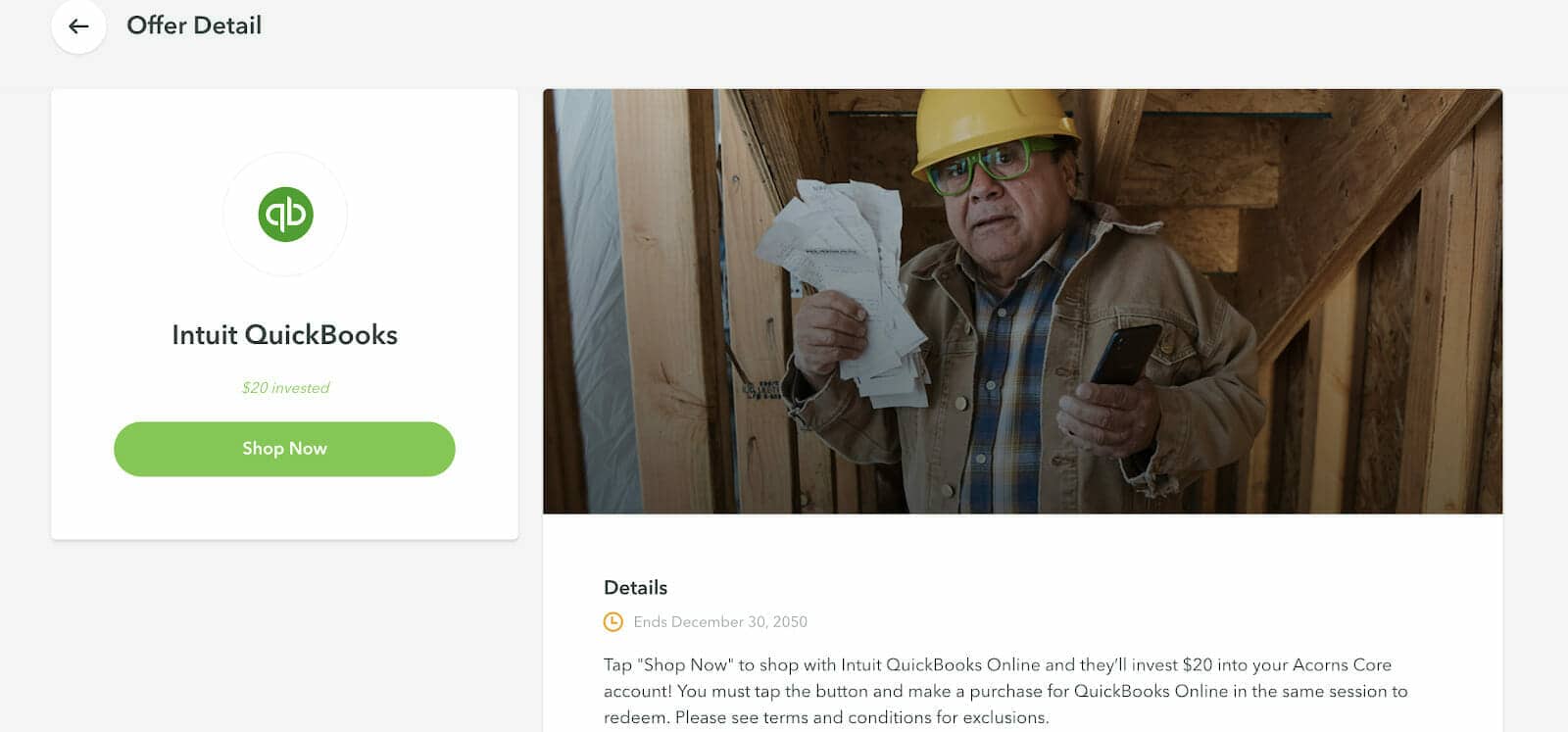
For example, when clicking on Intuit’s
Found Money even offers a Chrome extension to make looking for deals easier while browsing the web. It usually takes between 60 – 120 days for these deal earnings to show in your account.
Acorns Grow
Their online publication, Grow Magazine, hosts a suite of educational tools catered to both beginning investors and investors wanting to up their financial game.
They have a variety of articles covering multiple topics including:
- Investing Basics
- News
- Money 101
- Interviews
When you click on their Grow icon you’re taken to this page:
Along with the topics mentioned above, you’ll find additional resources covering:
- Saving
- Earning
- Building credit
- Paying off debt
There’s also plenty of information in the ‘How-To’ section on:
- Budgeting
- Financial Planning
- Career
- Real Estate
- Taxes
***PRO*** For the beginning investor to stay informed
Acorns Pricing
So, how much does Acorns cost?
Setting up an account is free, but Acorns won’t start investing your spare change until there is $5 in your account.
***Promo*** – Free for college students for four years with a valid .edu email address.
$5 offer for getting your friends to sign up. Both you and your friend will receive a $5 deposit into your Core account.
So, if you’re starting out and in college, this is an excellent opportunity to seize free money management paired with passive investing. Like I said earlier, they’re a financial gateway drug into the investing world. And it’s all free, you fiend.

For everyone else, their starter plan, Acorns Core, is $1 a month. That’s cheap if you keep a high account balance. However, if your account balance is only $10, that’s a 10% fee for managing your money. Keep that in mind before opening an account.
***Con*** – Low account balance can equate to a higher management fee.
If you don’t make a lot of purchases, then having an app round-up your spare change might not make sense. However, you can set up recurring deposits or lump-sum deposits to kickstart your investing goals.
Acorns Later is $2 a month and combines their investing platform with their retirement platform. Core + Later. This includes all of the features of Acorns Core plus lets you contribute to an IRA. You can set up recurring contributions and make lump-sum deposits here too.
Acorns Spend is $3 a month and combines all three:
- Core
- Later
- Spend
Spend gains you access to their all-digital checking account along with Core + Later.
Once your account balance hits $1M, Acorns drops the flat dollar amount of $1, $2, or $3, and changes the management fee to .25% of your account balance.
There’s no trading fee or closing fees with Acorns.
I did reach out to their customer support team via email regarding transfer fees and received a timely, friendly reply within 24 hours. When reading their fine-print, I noticed a $50 per ETF outgoing asset transfer fee. WTF? I had questions. This fee is easily sidestepped by withdrawing your funds, moving them into your checking account, and then re-investing the funds with another broker. There is no withdrawal fee which means no transfer fee!
Should You Invest With Acorns?
It depends on where you are in your financial journey. If you’re just starting and prefer hands-off investing while a
Pros:
- Free management for four years if you’re a college student with a valid .edu email address.
- Open an account with $0
- Start investing once your account balance hits $5.
- Create your custom portfolio in seconds based off of your goals and risk tolerance.
- No transfer fees, closing fees, or trading fees.
- Round-up every purchase or customize specific transactions.
- “Mindless” investing. It automatically rounds-up spare change, which makes the barrier to starting microscopic. If you can spare five minutes to create an account, you’re well on your way already.
- Set up recurring or lump-sum deposits. It doesn’t have to be only spare change.
Ideal for the:
- Beginner investor
- College student
- Hands-off investor
- Investor who “wants just to start already!”

Cons:
- Small selection of funds. Only the seven ETFs mentioned earlier are included in your portfolio.
- Potentially higher fees with a low account balance. $1 sounds cheap – and it is. However, if you’re account balance is only $150 at the end of the year, that $1 monthly-fee times 12 ($12 annually) equates to an 8% management fee.
- No tax-loss harvesting.
- No personal financial advisor is handling your accounts. However, you do have access to their excellent customer support team.
Final Thoughts
Acorns provides a low-barrier to getting started. Their founders had the crazy idea of making investing more accessible for everyone. If you’re looking just to get started, which is the best advice I could give anyone, Acorns may be a great fit.
The app is user-friendly and looks great. They handle all of the heavy lifting for you, so you don’t need to think about it.
They also harnessed the brainpower of two Nobel Prize-winning economists to structure your portfolio.
On the flip side, Acorns shouldn’t be used as your primary investment vehicle if you’re only investing your spare change. Why?
Because investing your spare change alone will not get you to financial independence.
You’ll need to invest larger, lump-sums to reap the benefits of compounding and wealth accumulation. Spare change will not let you hit financial independence anytime soon but can serve as the perfect compliment to your portfolio.
I don’t think the lack of ETF funds is a deal breaker if you’re just getting started. You can always move your account elsewhere in the future.
I did that. I moved my account from one broker to another the more I learned about personal finance.
I used to have my parent’s financial planner until I didn’t. Your investment journey will be an evolution. Your needs now will not be the same ones later in life.
If you’re a new investor who recognizes the importance of investing but is paralyzed by all of the information available – it’s better just to start and figure the rest out along the way. Wall Street isn’t as intimidating as they let you believe.
You needn’t worry with a service like Acorns.



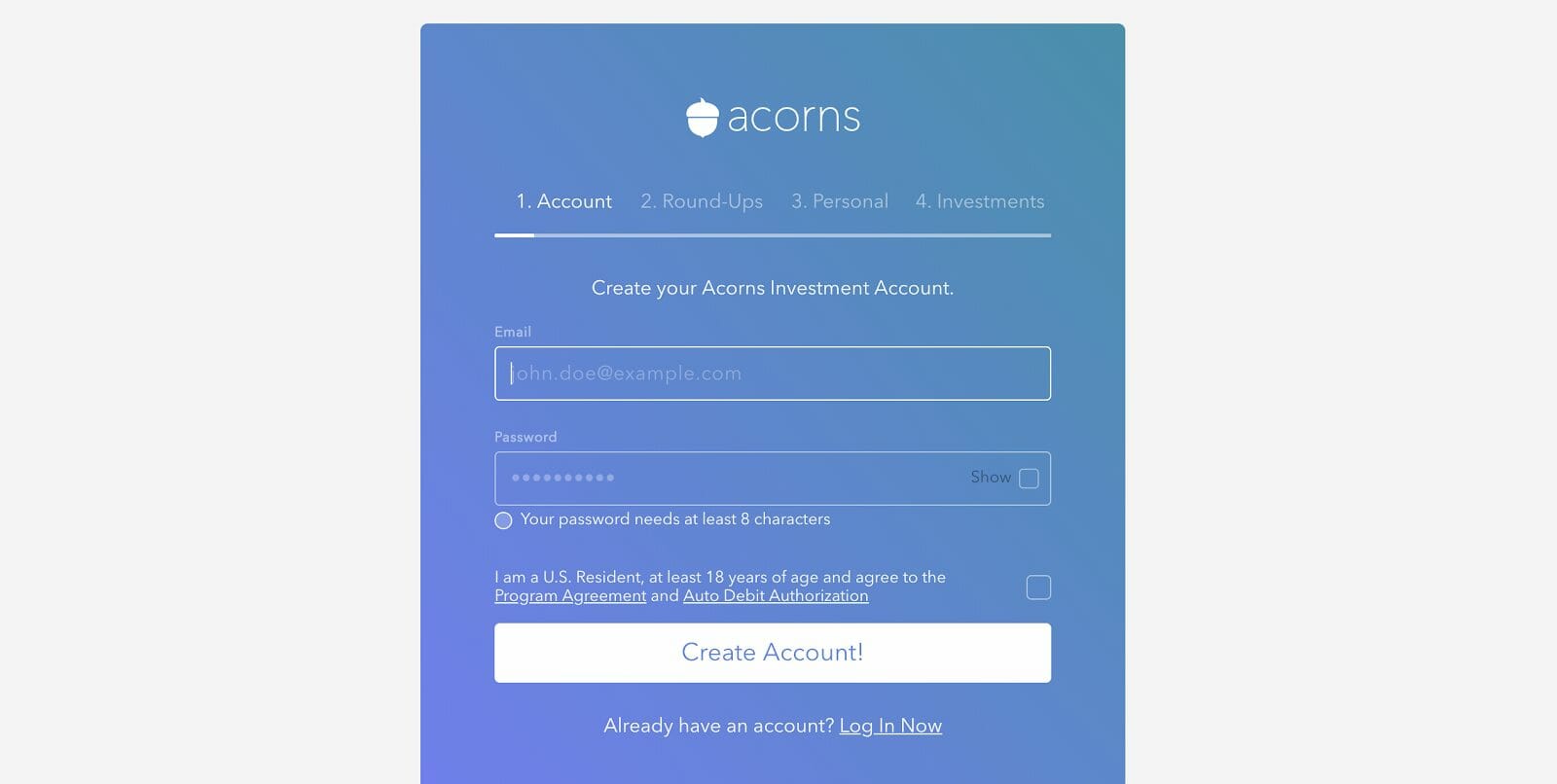
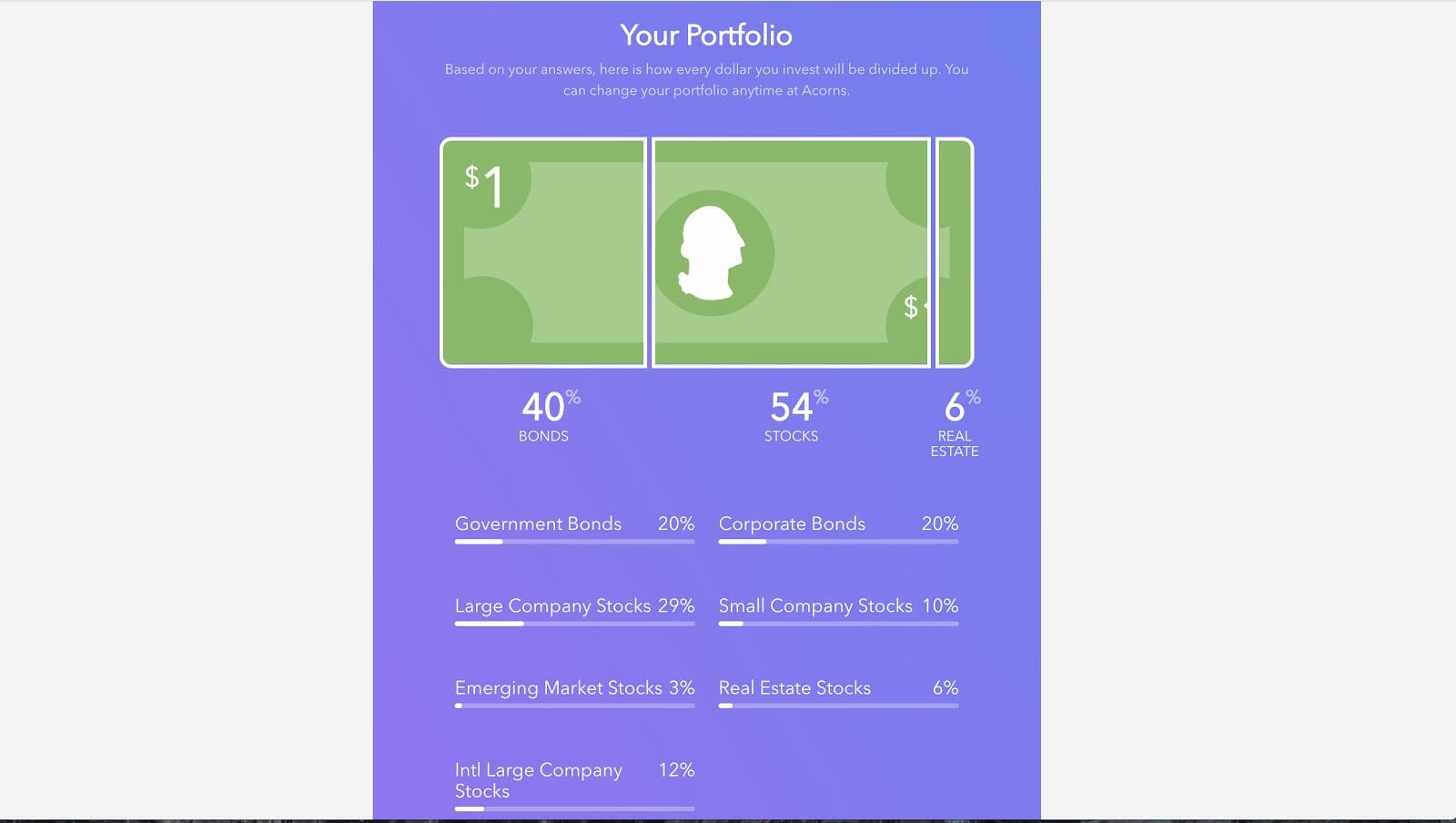
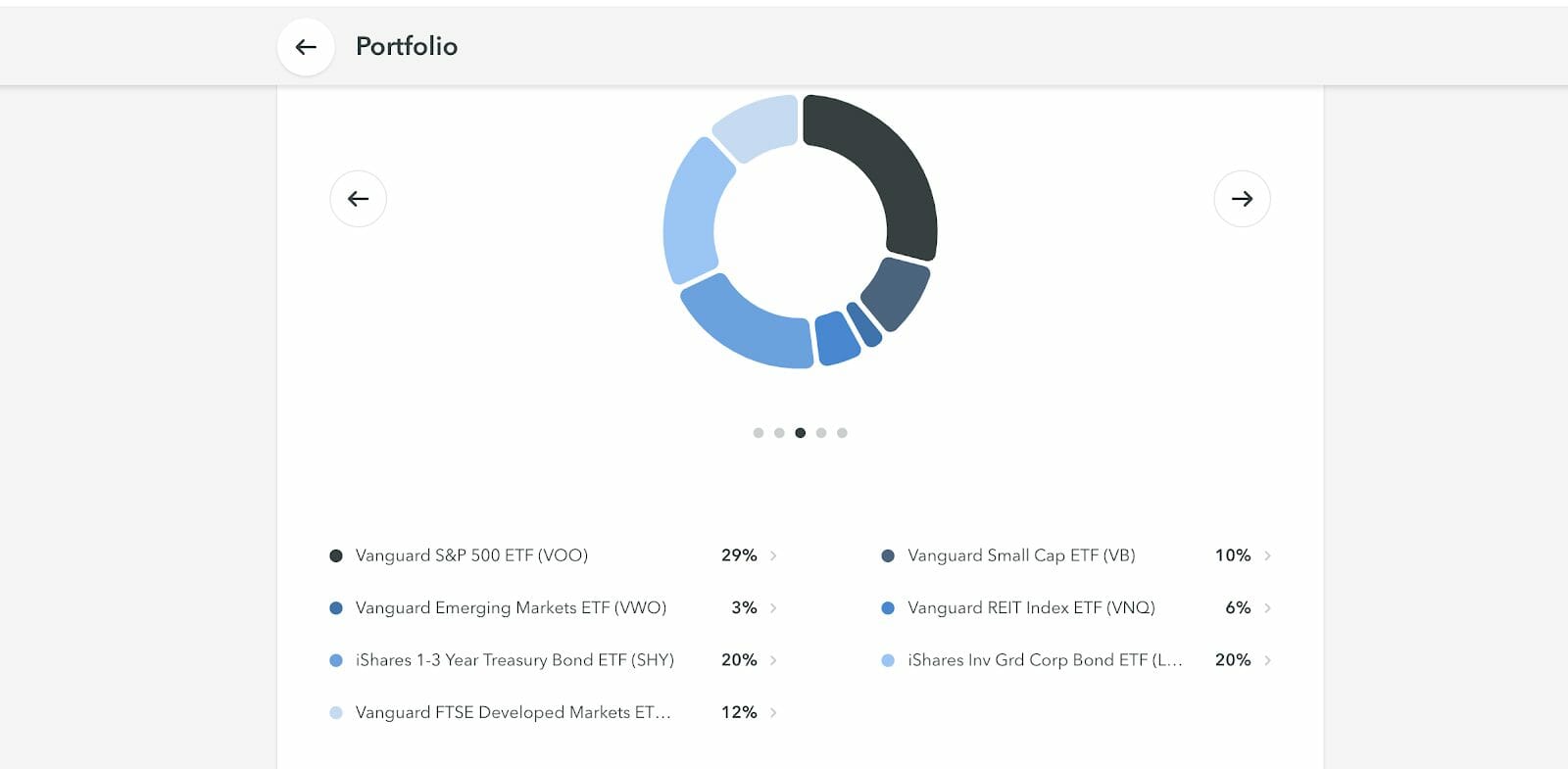
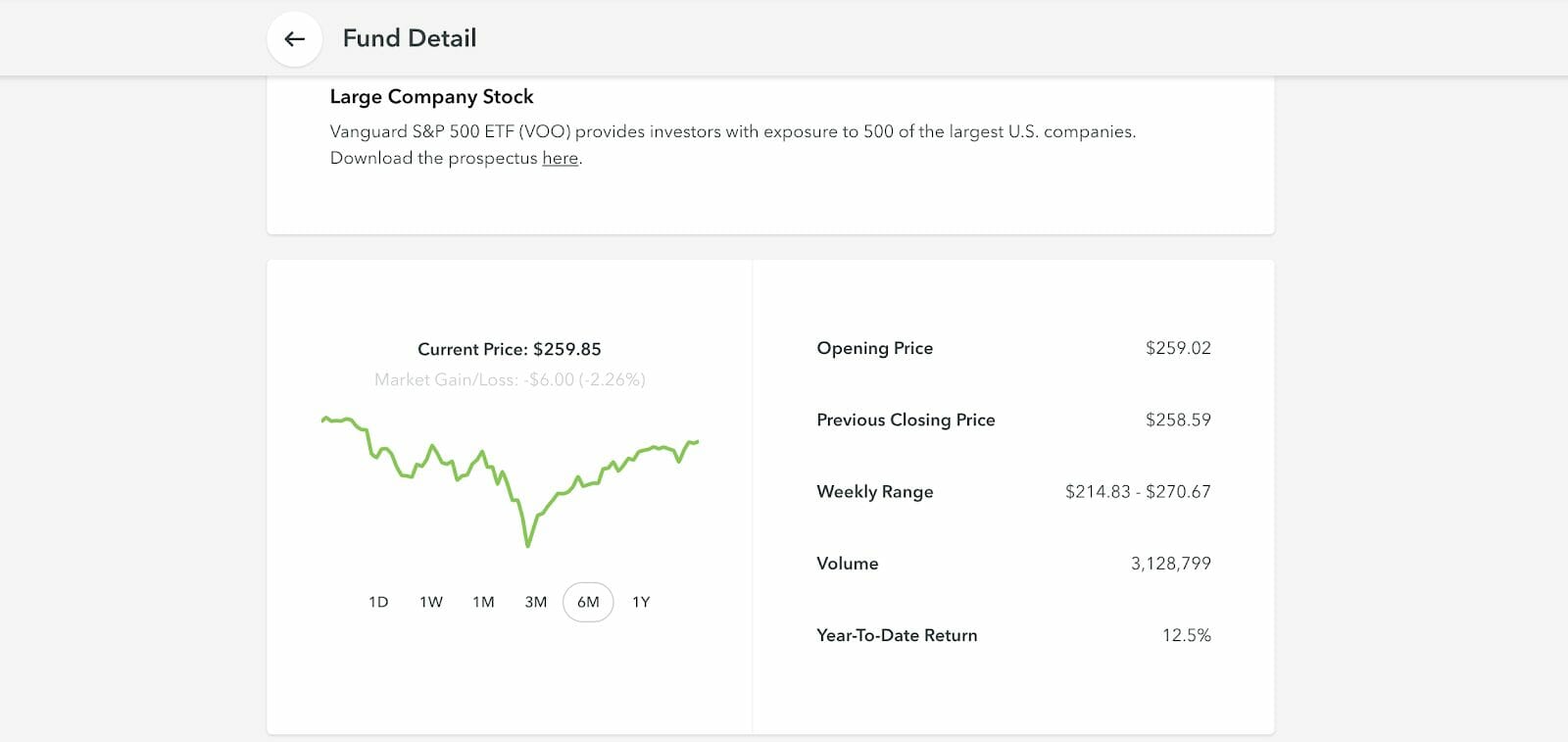
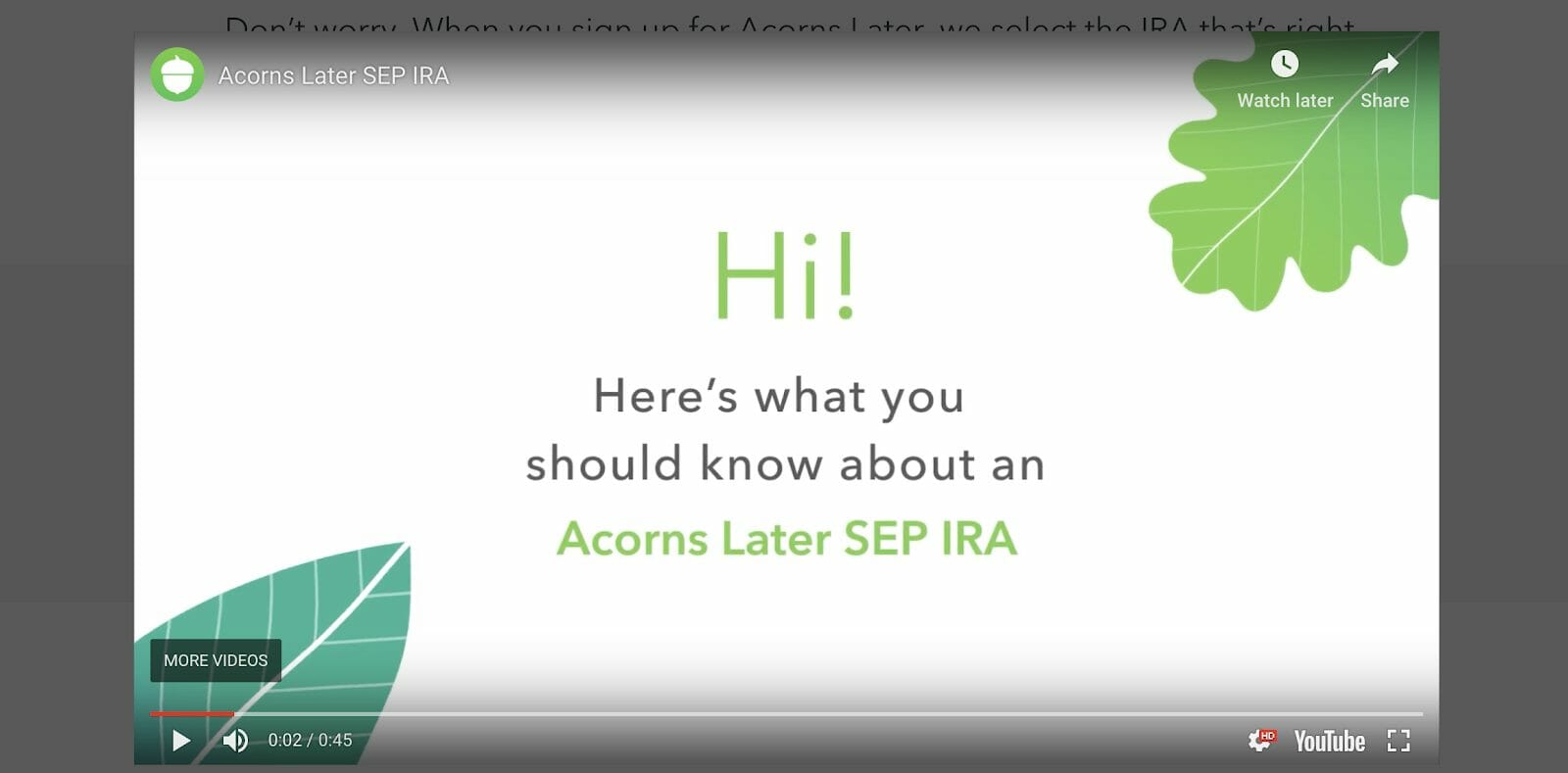
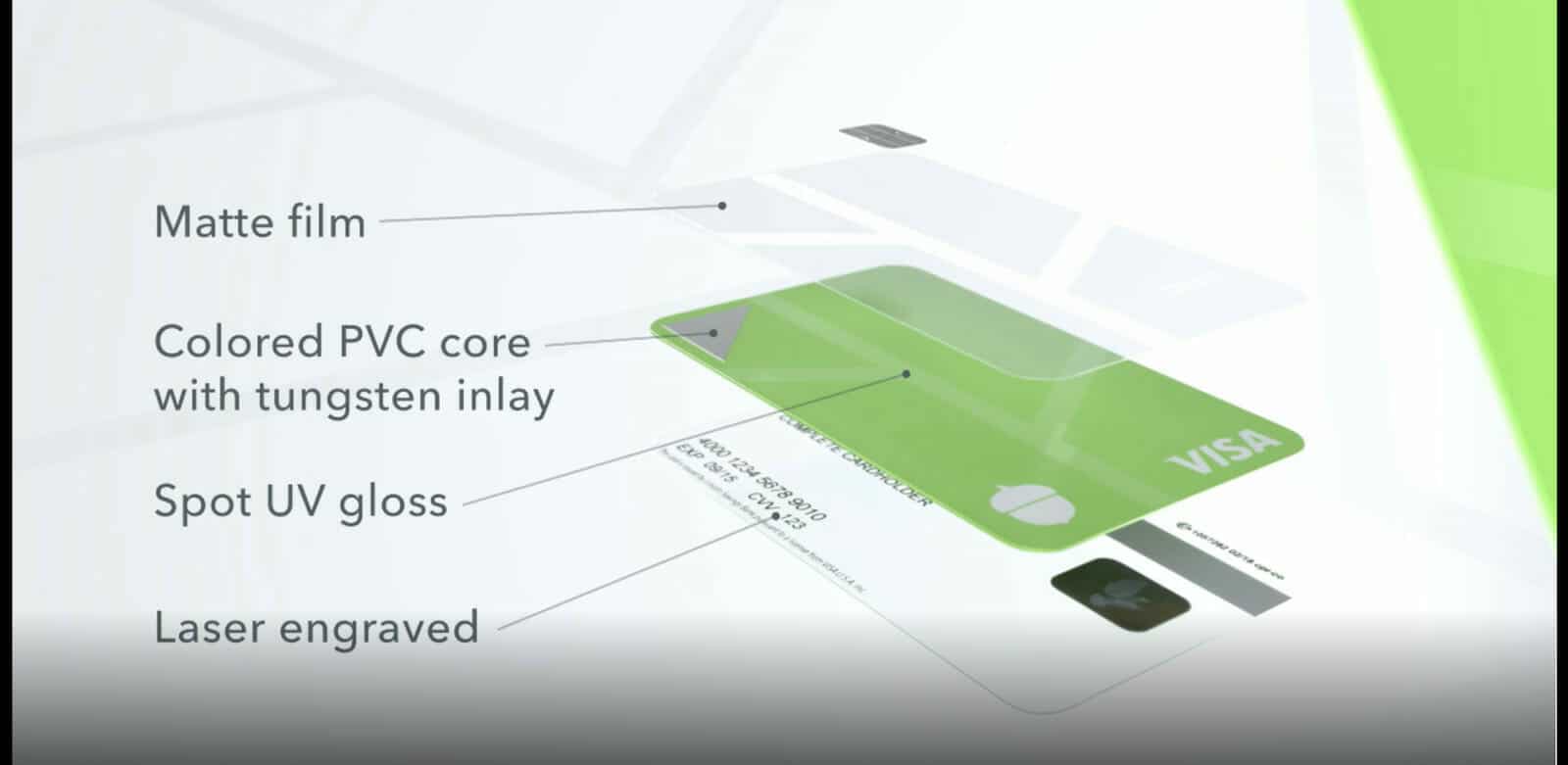
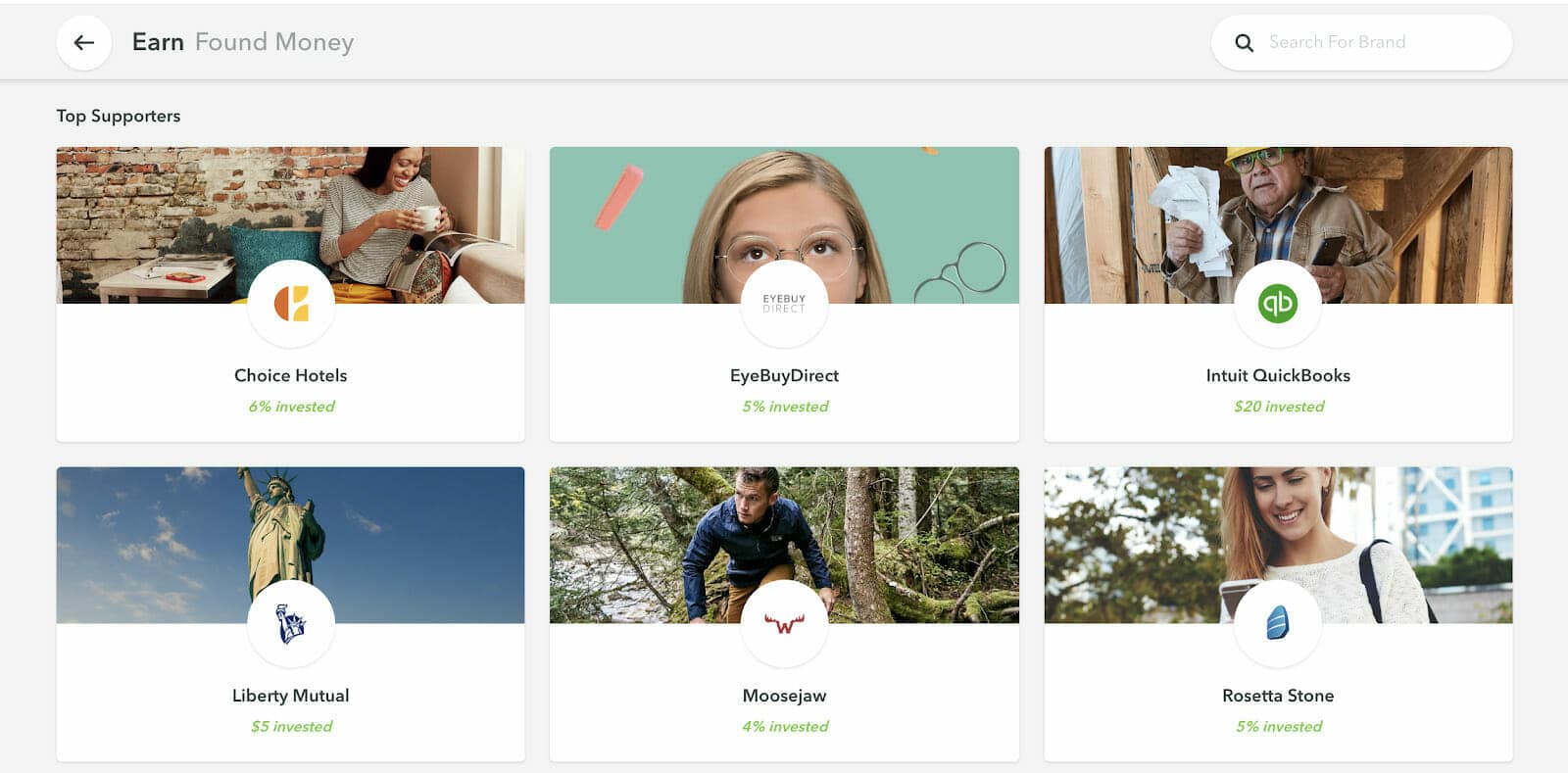
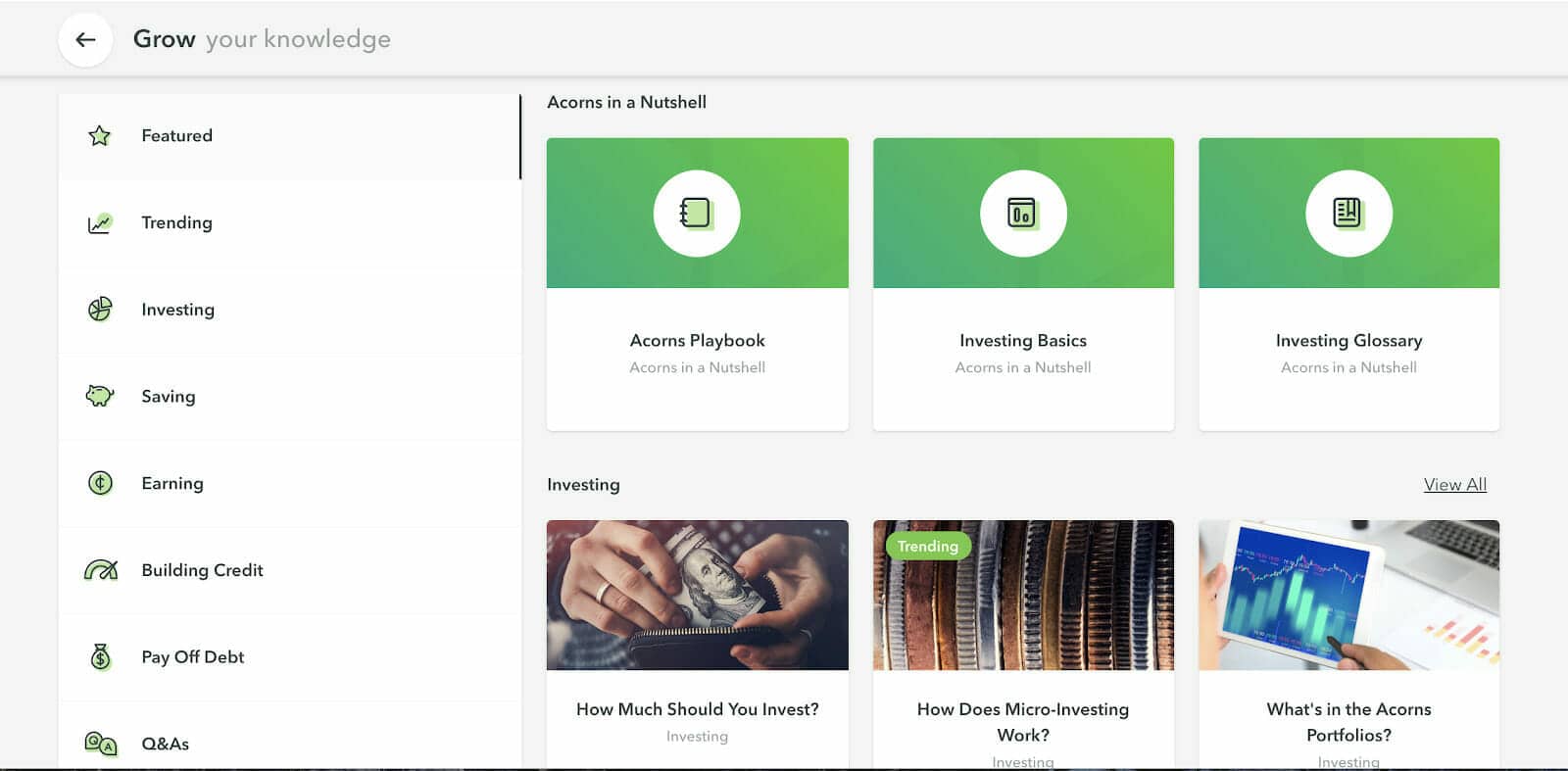



![M1 Finance: A Comprehensive Review [UPDATED]](https://www.listenmoneymatters.com/wp-content/uploads/2018/08/LMM-Cover-Images-2-768x432.jpg)





